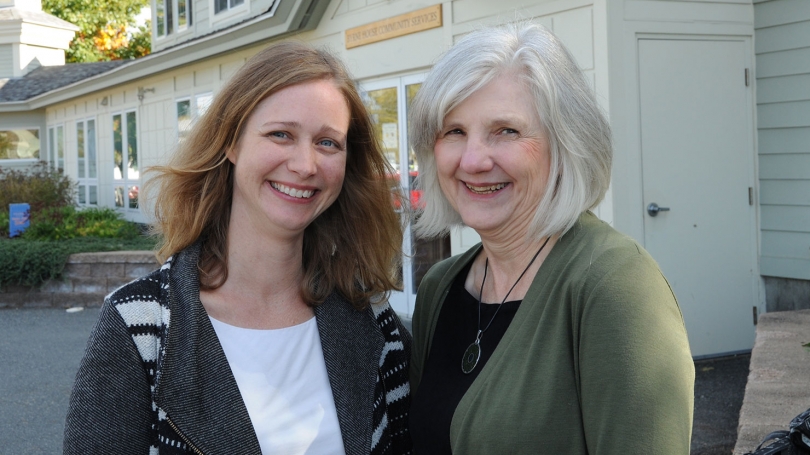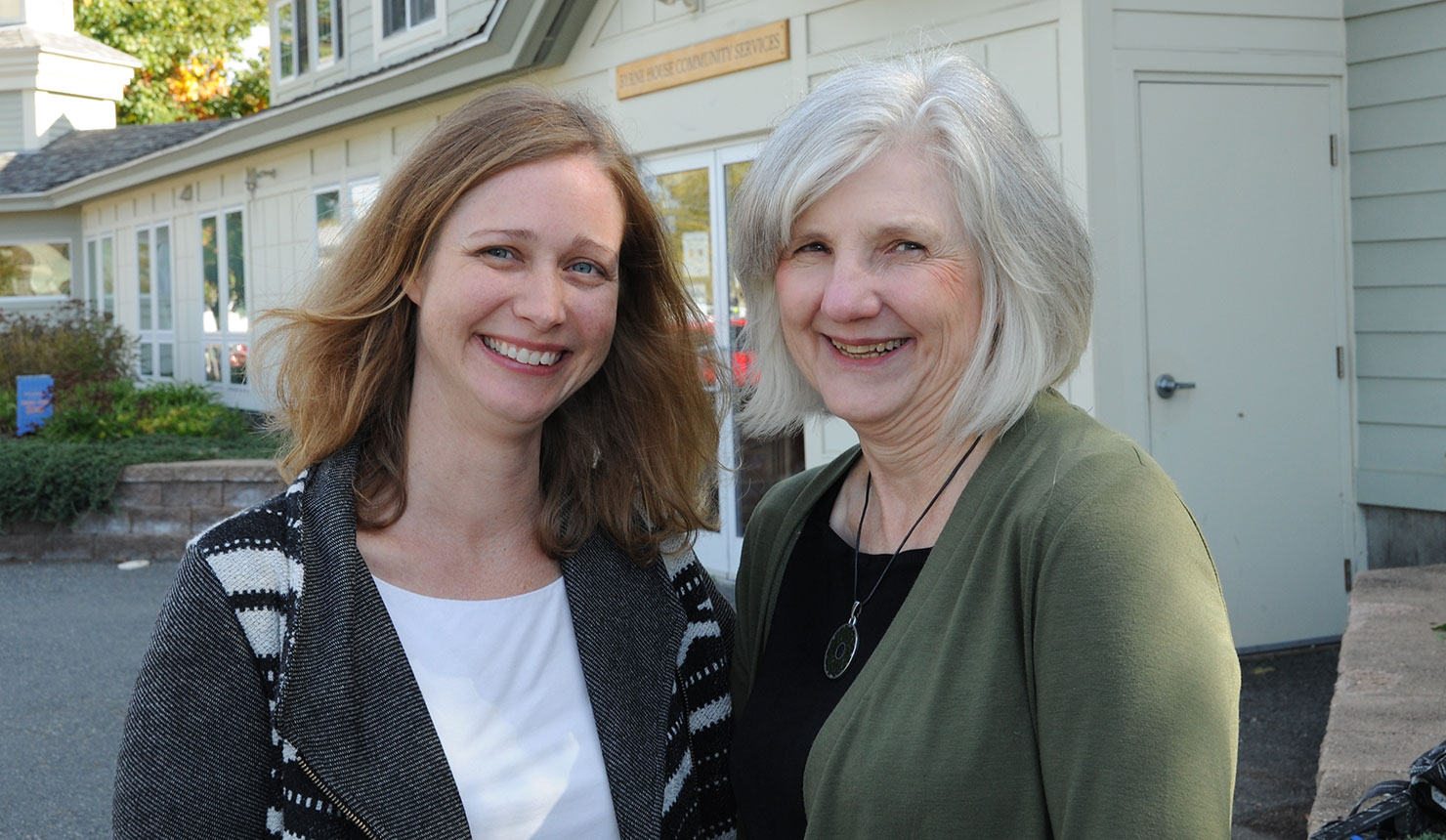


With their SYNEGY Community Engagement Research Pilot Award, Elizabeth Carpenter-Song, PhD (left), a research assistant professor of anthropology at Dartmouth and at The Dartmouth Institute, and Sara Kobylenski, MSW (right), executive director of the Upper Valley Haven, are working together to improve mental health care in the region. (photo by Jon Gilbert Fox)
Their pilot award winning project seeks to develop some key recommendations and strategies that can be used to improve mental health in the region.
“Most people struggling with mental health and substance use issues are not receiving treatment, and low-income rural individuals are particularly vulnerable as both rural poverty and mental health disparities are deepening,” explains Carpenter-Song. "Our project aims to place the voices and experiences of people who live ‘at the margins’ at the center of designing truly patient-and-family-centered mental health services.”
“Our project aims to place the voices and experiences of people who live ‘at the margins’ at the center of designing truly patient-and-family-centered mental health services,” adds Carpenter-Song, who is utilizing ethnographic interviewing and multimedia storytelling techniques in the effort.
“We’re so pleased to have received this pilot award with Elizabeth because of the potential impact this work can have in the region,” says Kobylenski. “At the Haven, we serve in total about 13,500 people per year who are struggling with poverty by providing food, shelter, education, clothing, and support services at no charge.”
Members of the Haven community are involved in all aspects of the project, she says, from serving as Advisory Board members, to participating in interviews and group discussions, to helping to interpret findings and eventually sharing key lessons learned with research, social services, and clinical communities.
“We need many different approaches to research to help solve the difficult health problems that confront individuals and families in our communities,” says Kobylenski. “What SYNERGY is bringing is an opportunity to gain knowledge in a way that hasn’t been available before.”
Read the full article here!